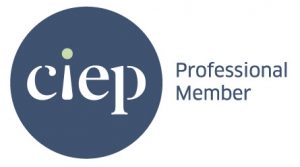
Image by Gerd Altmann at Pixabay
We had our final CIEP local group (South Warwickshire and Coventry) meeting of the year in December 2020. As usual, it was great to see lots of familiar faces and to have a good chat and a laugh about all sorts of things, some work-related and some not. Members of the group do all kinds of different work, including proofreading, copy-editing, copywriting, developmental editing and project management.
Learning in a supportive environment
Our group is invaluable, I think, in terms of providing support for local members, providing a space for us to bounce ideas and questions off each other, and for reassurance that we’re not the only person who has a particular concern or blind spot, for example.
Before I wrote this post, I had a chat with a friend I made a couple of years ago via this group about why we think it’s successful, and we came up with various things. We both like the fact that the meetings are unstructured and informal, though it’s always useful to have a couple of things on a loose agenda to talk about to kick off our Zoom meetings. I think our meetings would be very different – not necessarily worse – if they involved an invited speaker or a more detailed and formal agenda.
Sharing ideas, information and advice
We’re very lucky because all of our members are generous in terms of sharing ideas and experiences. And no one is judgemental when someone confesses that they need advice or that they have found themselves in a tricky situation that they felt out of their depth with for a while. Or when someone admits that they have had no experience of a particular work-related topic we’re discussing. And that’s fine – gaining knowledge and even just little tips in this way is a brilliant way to learn. We all work in different areas and have different specialised areas too, so our knowledge is bound to differ a lot if among our members we have, say, a proofreader who always proofreads fiction, a copywriter with a background in marketing who works mostly on business documents, and a copy-editor and proofreader who specialises in working on academic texts, including for master’s and PhD students (that’ll be me!). This often means that someone raises a topic and different people then contribute and add a slightly different perspective.
Strength in numbers?
A different type of advantage of our group is that we have about 12 or 13 members who come to most meetings. So even if several people cancel attending a meeting at the last minute, we still usually have at least 5 or 6 people coming along, and that’s fine for an informal dinner and chat at a restaurant or pub (in pre-Covid times) or a Zoom meeting. This smallish number might be a bit embarrassing if we had invited a speaker and hired out a room for 20 somewhere, though! Perhaps another reason to avoid that route.
It’s official – laughing is good for you
We always have a good laugh at our meetings, which I’m sure we’ve all needed more than ever since last March. I think we’re all pretty good at laughing at ourselves too – definitely something that’s needed when you’re self-employed and sometimes have to learn from your own mistakes (hopefully small ones).
So these were our conclusions about why the group seems successful and has had an enthusiastic and active membership for quite a while. Whatever the reasons, I’ve thoroughly enjoyed being a part of it and being joint coordinator for the last 5 years or so. Long may it last, and let’s hope for a brighter 2021 for all of us.
(Amended first pargraph July 2024.)

 I am a Professional Member of the Chartered Institute of Editing and Proofreading (CIEP). This is a professional UK-based but international organisation for editors and proofreaders that promotes excellence in English language editing (formerly called the Society for Editors and Proofreaders (SfEP)). I am proud to be a member of this organisation and have an obligation to abide by its code of practice:
I am a Professional Member of the Chartered Institute of Editing and Proofreading (CIEP). This is a professional UK-based but international organisation for editors and proofreaders that promotes excellence in English language editing (formerly called the Society for Editors and Proofreaders (SfEP)). I am proud to be a member of this organisation and have an obligation to abide by its code of practice: